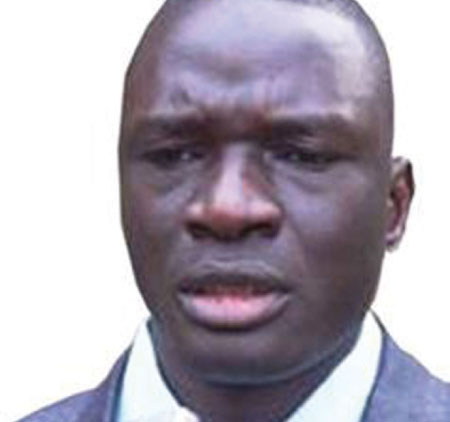
Monday’s judgment brought to end two years of trial, after he was indicted on a single-count charge of giving false information to a public officer.
Police prosecutors accused Mambanyick Njie that on 1 March 2012 in Banjul whilst serving as permanent secretary at the Ministry of Youth and Sports, he wrote a petition to the Office of the President stating that the then Gambia Football Association (GFA) executive officers were engaged in financial malpractice, and never gave a true account of the imprests given to them for international matches and, therefore, sought approval to dissolve the said GFA executive, information he knew to be false or did not believe to be true, and thereby committed an offence.
Delivering the judgment, the trial magistrate told the court that the accused person was arraigned on 5 November 2012 and pleaded not guilty to the charge.
The trial lasted for two years, during which the prosecution called six witnesses and tendered exhibits,
The accused person testified, called no other witness, and tendered exhibits in support of his case.
The accused further tried to prove before the court that there had indeed been some financial malpractices by the then members of the GFA executive to give credence to his petition, and in that regard freed himself from the charge in his trial.
The sixth prosecution witness contradicted himself on the record, as to how many players and officials he went with to Portugal, but he admitted that six players whose allowances were given to him did not turn up.
The prosecution did not offer any explanation as to what happened to that sum of 1,200 Euros that was meant for six players, who never made it to Portugal.
He said the accused also stated that the FIFA subvention was mainly for the development of football and football-related activities in the country and not for the executive members to give it out as loans to themselves.
He said the evidence before the court showed that over one million dalasi had been issued out by the executive of the then GFA as personal loans to the staff and, according to their own auditor, out of 24 recipients of this loan, only two application forms could be produced which even had no repayment periods.
The third prosecution while being cross-examined also told the court that he did receive the loan, but he never applied for it in writing or orally.
Malpractice has been defined by “Black’s Law Dictionary” as an instance of negligence or incompetence on the part of the professional. Clearly, this applied where any system or management allows the issuance of huge sums of money as loans without any clear cut procedures on how to access and to repay such loans.
Magistrate Jallow quoted the GFA constitution which stated that the executive committee shall prepare, submit and defend an annual budget to the General Assembly for adoption, and it further stated that the agenda for the annual general meeting must include approval of the budget for the following year.
“It is not in dispute that GFA had not held an annual general meeting for 2009, 2010 and 2011 respectively,” said Magistrate Jallow.
It was the accused person’s defence that expenditure done during this period by those who did so lacked the legal authority to do so.
“I therefore resolve the second issue in favour of the accused person, in that the content of the petition letter is not entirely false,” he said.
The letter that formed the subject of this charge was written by the accused person in his capacity as the permanent secretary, Ministry of Youth and Sports, and it was his defence also that the content on the letter represented the views of the ministry and not his personal view.
According to the magistrate, neither the panel of investigators nor the prosecution called anyone from the said ministry to confirm or deny that statement.
“In the light of all the above, it is my view that the prosecution did not discharge its legal burden of proof to the required legal standard set under the Evidence Act, 1994.
“Consequently the accused is hereby acquitted and discharged,” the magistrate declared.


